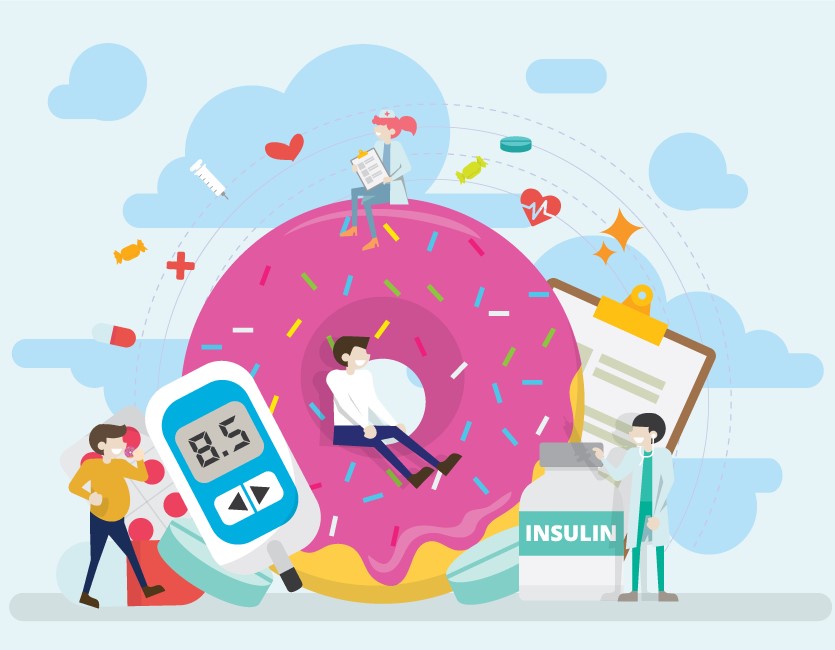Patients with type 2 diabetes belonging to online support groups have poorer health
This has been little studied and is the subject of recent research published in the Journal of Diabetes Science and Technology, conducted by Noelia Herrero, Frederic Guerrero-Solé and Lluís Mas-Manchón, researchers at the Department of Communication.

Diabetes is a disease that affects people’s lives more in the long term and requires emotional support and information. It is increasingly common for people with diabetes to participate in digital communities and seek help in so-called OSGs (online support groups) to share experiences and glean information. This social phenomenon has been little studied.
A group of researchers from the Department of Communication at UPF consisting of Noelia Herrero, Frederic Guerrero-Solé and Lluís-Mas Manchón has attempted to ascertain whether there is a relationship between participation in specific forums and support groups for people with diabetes and the self-management of the disease and its impact on their health.
The results indicate that participants in these forums present lower levels of disease management, more disease-related health complications and poorer health
“We asked ourselves about the correlation between the participation of people with diabetes in OSGs (Facebook in particular) and other aspects of their life, such as their emotional well-being or their health”, says Noelia Herrero, first author of the work.
To conduct the study, the researchers contacted participants through the website “Dulces Diabéticos”, and online publications in forums on diabetes: “Diabetes Foro” and also Facebook groups related to the disease. Between 19 May and 6 September 2018, they conducted an online survey and collected data for evaluation from 307 Spanish participants, most of whom, 210, diagnosed with type 2 diabetes, the most active in these digital environments; 82 diagnosed with type 1 diabetes and the remainder reported having other types of diabetes. In their analysis, the researchers took into account sex, age, education and type of diabetes.
Highly significant results in type 2 diabetes
Analysis of the study data has shown that “people with diabetes who participate in these groups generally have worse health than those who do not and, in addition, they also have more disease-related complications (neuropathy, nephropathy, etc.)”, says Herrero, who plans to continue in the course of her doctoral studies at the Department of Communication at UPF with this line of research taking the role of health personnel and technologies available to patients into account.
The results indicate that participants in these forums present lower levels of disease management, and more disease-related health complications. So far, this connection is not statistically significant for users with type 1 diabetes, but is strong for users with type 2 diabetes, the authors suggest in their article.
The findings of this research are very important because people with diabetes, as occurs with other diseases, look to the Internet and social networks for information and support, and it may be that, contrary to what they might believe, the information they find there may not be sufficiently reliable and their consultation could be counterproductive for their health.
Related work:
Noelia Herrero, Frederic Guerrero-Solé, Lluís Mas-Manchón (2020), “Participation of Patients With Type 2 Diabetes in Online Support Groups is Correlated to Lower Levels of Diabetes Self-Management”, Journal of Diabetes Science and Technology, 7 March, https://doi.org/10.1177/1932296820909830
